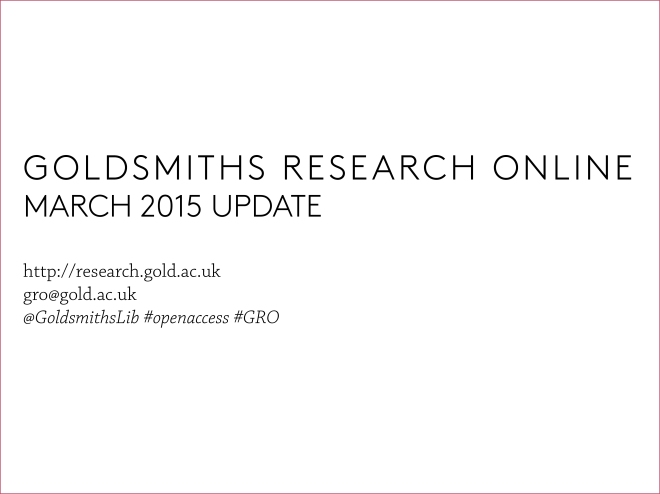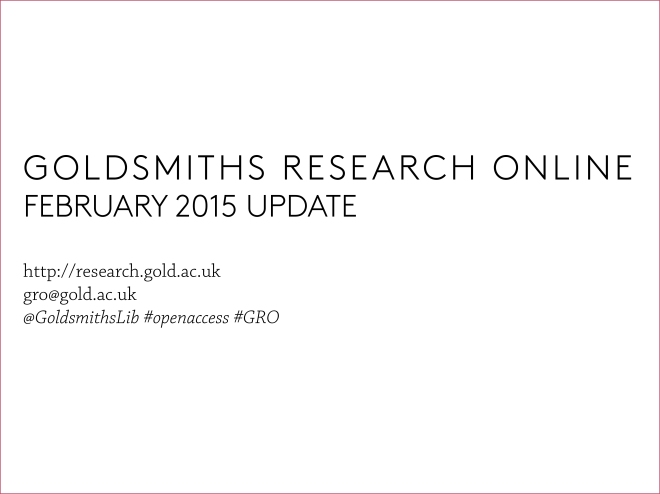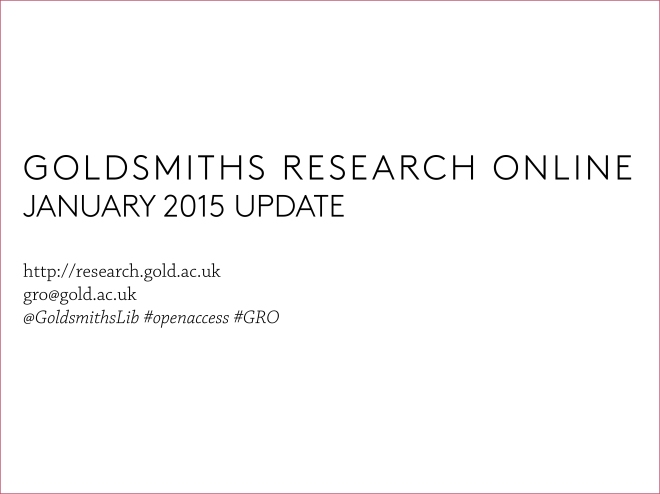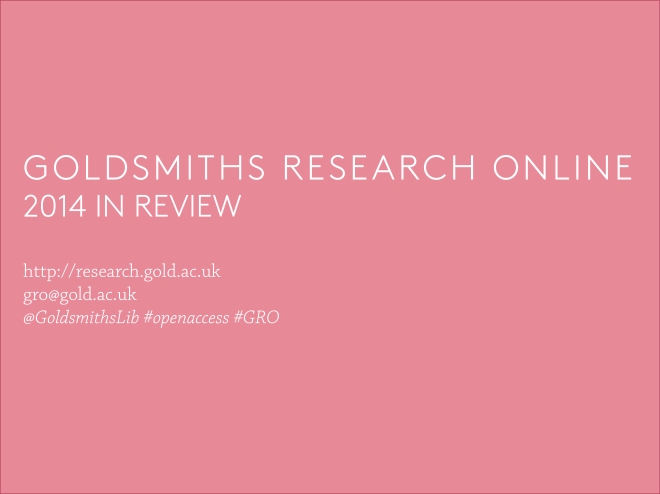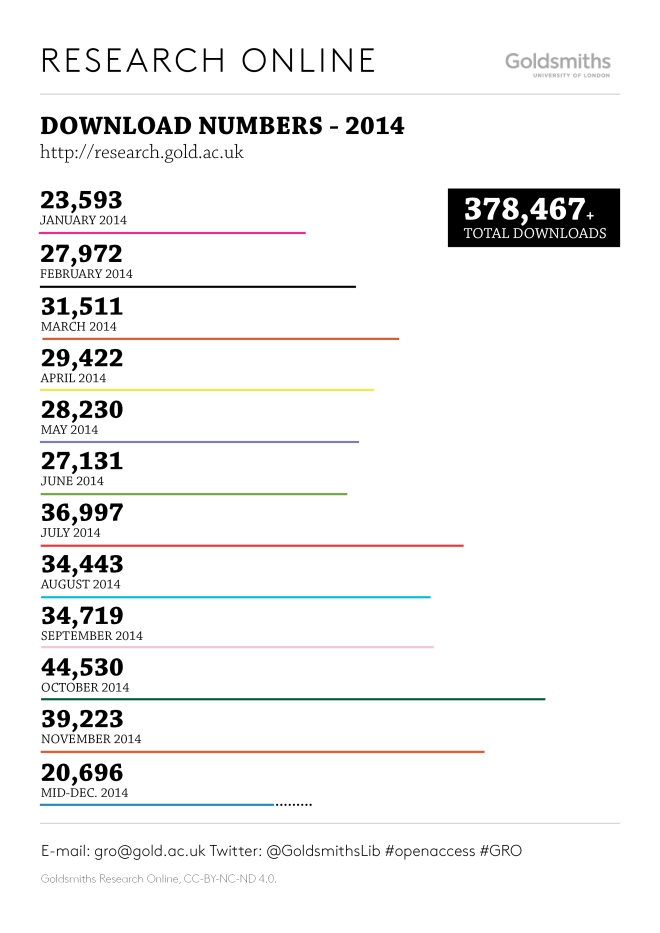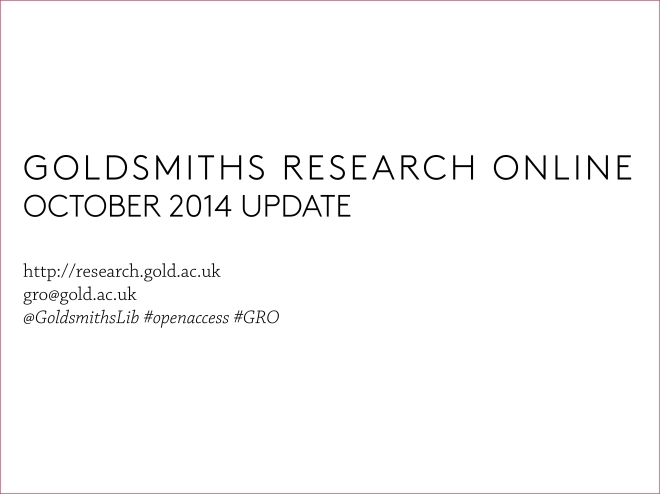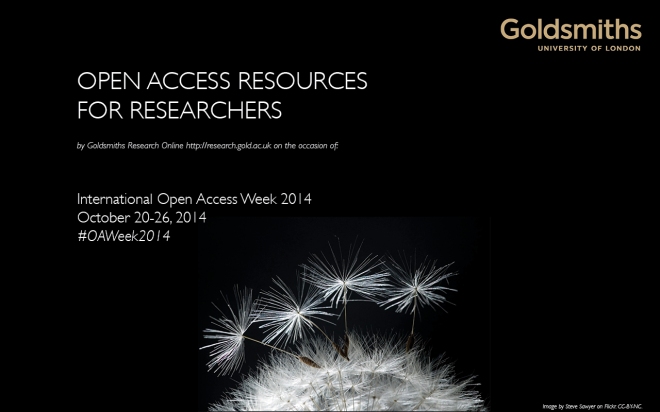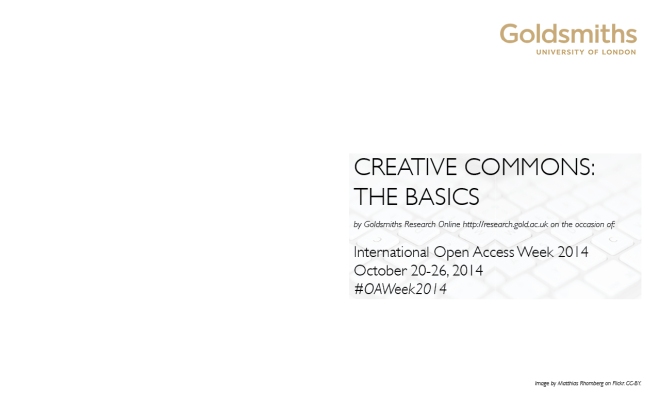49,665 items were downloaded from GRO this month. The countries that downloaded the most were United Kingdom, United States, and Germany.
This month’s top downloaded item is an unpublished paper “Understanding the t-test as a variance ratio test, and why t-squared = F” by Rory Allen, Associate Lecturer in Psychology. Allen’s paper has reached many people through GRO even though it is not included in an academic publication, which shows the potential of Open Access repositories as a platform to circulate research.
The three most popular items in GRO this month were:
Understanding the t-test as a variance ratio test, and why t-squared = F (2008) by Rory Allen (345 downloads).
FLOSSTV Free, Libre, Open Source Software (FLOSS) within participatory ‘TV hacking’ Media and Arts Practices (2012) by Adnan Hadziselimovic (343 downloads).
Journalism: a profession under pressure? (2009) by Tamara Witschge and Gunnar Nygren (311 downloads).
New in GRO This Month
Research outputs available on GRO range from book chapters to music compositions, from artworks to journal articles. Here is a small selection from the recent deposits:
Dhiraj Murthy from the Department of Sociology published a paper entitled “Twitter and elections: are tweets, predictive, reactive, or a form of buzz?” in the Information, Communication & Society. Murthy’s paper looks at the relationship between the political activities on Twitter and the results from the ballot box. http://research.gold.ac.uk/11480/
Tom Perchard from the Department of Music has published a book called After Django: Making Jazz in Postwar France, which looks at the ways in which French musicians and critics interpret jazz in the mid-twentieth century. http://research.gold.ac.uk/11486/
More about GRO Stats
We are publishing brief reports every month if you are interested in seeing GRO’s monthly upload and download activity. You can access the April report here.
Deposit Your Work
If you are an academic or a PhD student at Goldsmiths, you can deposit your research outputs on GRO. If you need any help or guidance, please email the GRO team at gro@gold.ac.uk.

